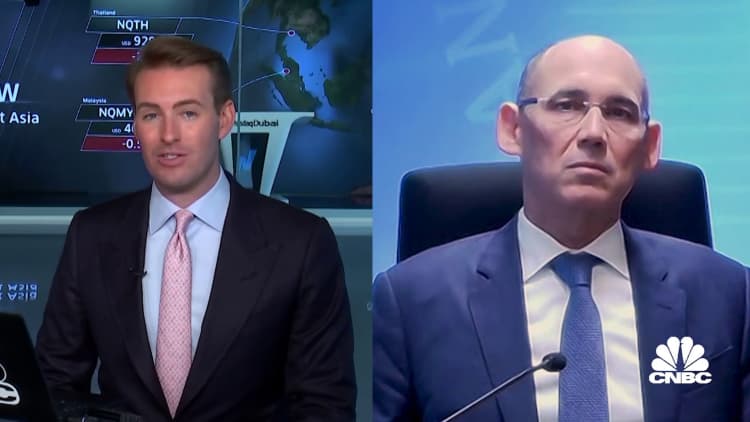This picture taken on August 23, 2022 shows a view of the exterior of the headquarters of the Bank of Israel, the country’s central bank, in Kiryat Ben-Gurion in Jerusalem.
Ahmad Gharabli | Afp | Getty Images
Bank of Israel Governor Amir Yaron said Tuesday that currency intervention to support the weaker shekel will only be necessary in the event of market failures.
His comments come shortly after the central bank held benchmark interest rates steady at 4.75% for the second consecutive month, in line with market expectations, although Yaron has hinted that further rate hikes may be necessary to bring inflation down.
The U.S. dollar is roughly 8% stronger than the Israeli shekel year-to-date, trading at 3.8 on Tuesday and hovering near its weakest level since March 2020.
“The shekel has had a long relationship with the financial markets abroad, it has been tied to that. That link has weakened significantly since the beginning of the year. And we are seeing the market is trying to figure out the appropriate risk premia that’s associated with the increased uncertainty in Israel that has probably come about with the judicial changes,” Yaron told CNBC’s Dan Murphy.
“We believe that we should let the market try to figure out that risk premia,” he added, noting that markets appear to have “functioned well” in recent months despite the increased volatility.
“However, if there will be market failures, which we have not seen thus far or very significant movements that really impede on inflation, then we have the tools to deal with that.”

Asked whether this meant the central bank would consider currency intervention measures if necessary, Yaron replied: “We believe very strongly that we should let markets dictate, especially in this period of high uncertainty.”
“Really, only if we see market failures, this is the point where we believe we should use those kind of tools,” he added.
The shekel has depreciated in recent months following Prime Minister Benjamin Netanyahu’s decision to impose new legislation on the Supreme Court.
The move sparked mass protests nationwide and opponents of the legislation argue that it substantively weakens the purview of Israel’s top legal court and paves the path for abuses of power and improper appointments.
Netanyahu has defended the move, telling NBC News last month that “when the dust settles, people will see Israel’s democracy has strengthened and not weakened.”
More rate hikes to come?
The Bank of Israel on Monday kept interest rates unchanged after a series of hikes took the rate up from a record low of 0.1% in April last year.
Yaron said he expected that the central bank had done enough to allow inflation, which currently sits at 3.3%, to come back to target levels in the first three months of next year.

“I want to be clear, the next reading will probably put us at 4% inflation rather than the 3.3% which we are now at and as long as the developments come through the way we expect them, this should be enough.”
Yaron said, however, that the central bank would “not hesitate to raise rates again” if there are any surprises or significant currency moves that put pressure on inflation dynamics.
“Price stability is critical, we are vigilant and determined to get inflation back to its target,” he added.
— CNBC’s Ruxandra Iordache contributed to this report.

